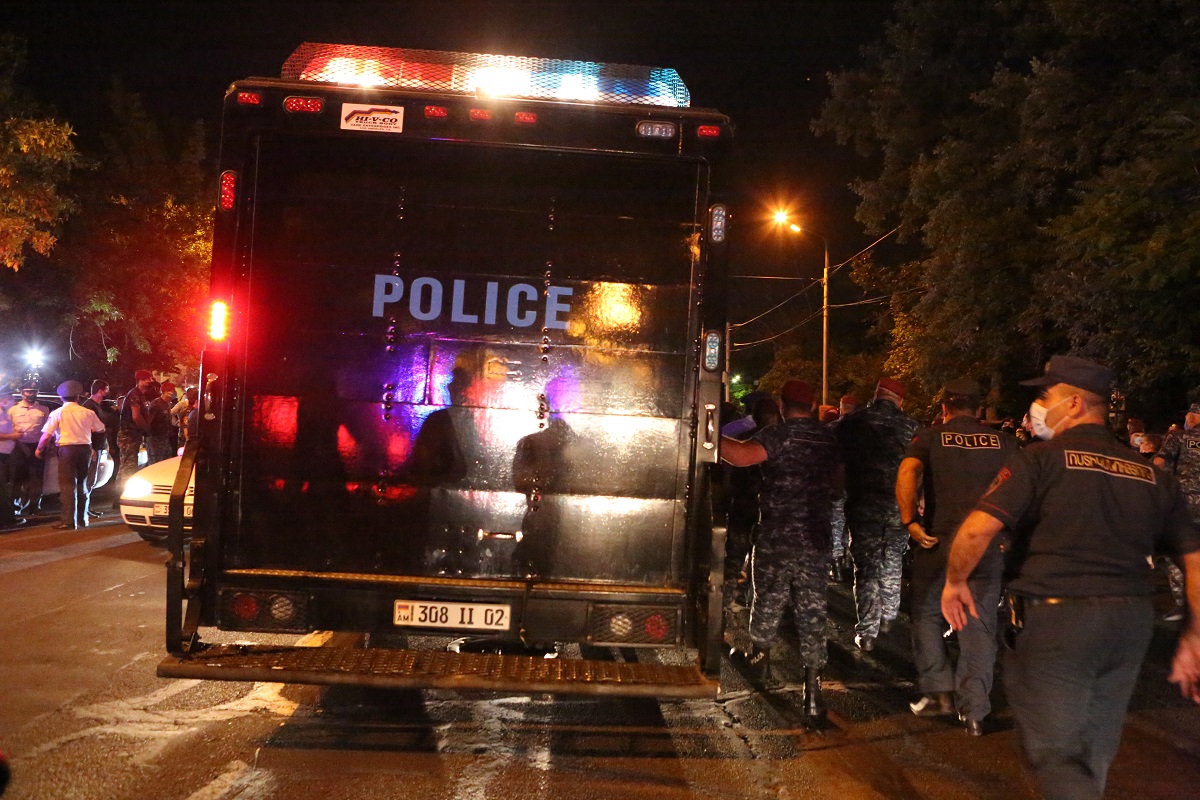International Freedom House group appeals to Armenian PM to hold in-person press talks
Freedom House Address to the Prime Minister of Armenia
The international human rights organization Freedom House has addressed two topics that are now being actively discussed by Armenian journalistic organizations and in expert circles. On its Twitter, the organization has welcomed the decriminalization of grave insult in Armenia and called on Prime Minister Nikol Pashinyan to take seriously the media demand to restore direct contact with journalists.
Freedom House’s Nations in Transit annual report states that Armenia is not yet a democratic country, despite having “taken steps to strengthen democracy.” The organization described Armenia’s 2021 snap parliamentary elections as free and independent but stressed that the country has retreated in the area of freedom of speech.
- Will Armenia follow Russia’s example in controlling and censoring publications on the Internet?
- “Another attempt to reproduce power?” – Armenia to carry out more сonstitutional reforms
- Anna Vardapetyan became Armenia’s first female Prosecutor General
“Use direct communication channels”
Freedom House urges Nikol Pashinyan to take media concerns seriously. The organization believes that it is necessary “to use direct channels of communication, including through open and transparent press conferences, to ensure the healthy functioning of democracy”.
Since the 2020 Karabakh war, the Prime Minister of Armenia has held four press conferences, all four were held online. Initially, the government explained this by the pandemic and the fight against the spread of coronavirus. However, the press conferences continued to be held online even after the infection rate dropped.
This caused concern and even outrage in journalistic circles. Now the Armenian media must send questions to the prime minister’s office in advance, and they do not have the opportunity to respond to his answer. In addition, the questions of some publications may not sound at all, thematically close ones are often grouped into one, and some are edited. For this reason, more than 30 media outlets boycotted the latest press conference of the prime minister and refused to send questions.
They also issued a statement that they considered the format of the press conference “discriminatory, ineffective and contrary to the principles of transparency and accountability, which are the key to freedom of speech and democracy”.
During a press conference, the Prime Minister of Armenia, in response to a media statement, stressed that the online format is “an opportunity, not a coercion, and there will always be a reason for a boycott”.
Freedom House welcomes decriminalization of ‘grave insults’
On July 30, 2021, the Armenian parliament decided to include an article on “grave insult” in the new criminal code. Only deputies of the ruling faction took part in the voting.
The article on the criminalization of a grave insult to persons engaged in “public activities” provided for punishment in the form of a fine or imprisonment (1-3 months). By “public activity”, the authors of the law meant journalism, journalism, the performance of official duties, public service, and public or political activity.
Recently, Minister of Justice Karen Andreasyan announced that the article on the criminalization of grave insults would cease to operate from July 1. For those who “abuse freedom of speech, the current norms of civil liability will remain” – compensation of up to 3 million drams ($7,300 at the current exchange rate).
Local experts believe that the reason for this decision was the criticism of human rights activists and international structures, including the Parliamentary Assembly of the Council of Europe.
Freedom House called on the Armenian authorities to decriminalize “grave insult” back in August last year. The organization said in a statement that this article jeopardizes Armenia’s achievements in the field of democracy and law. In February 2022, the structure addressed the Armenian Parliament with the same appeal.
Now, the human rights organization has welcomed the decriminalization of “grave insult” as well as the government’s commitment to broad consultations on media legislation.
According to official statistics, to date, more than 800 criminal cases have been initiated under the article on serious insult. More than 50 cases are in court. In six cases, there are already verdicts that have entered into legal force, and the Ministry of Justice has not yet announced what will happen to the accused.
Freedom House Address to the Prime Minister of Armenia





















